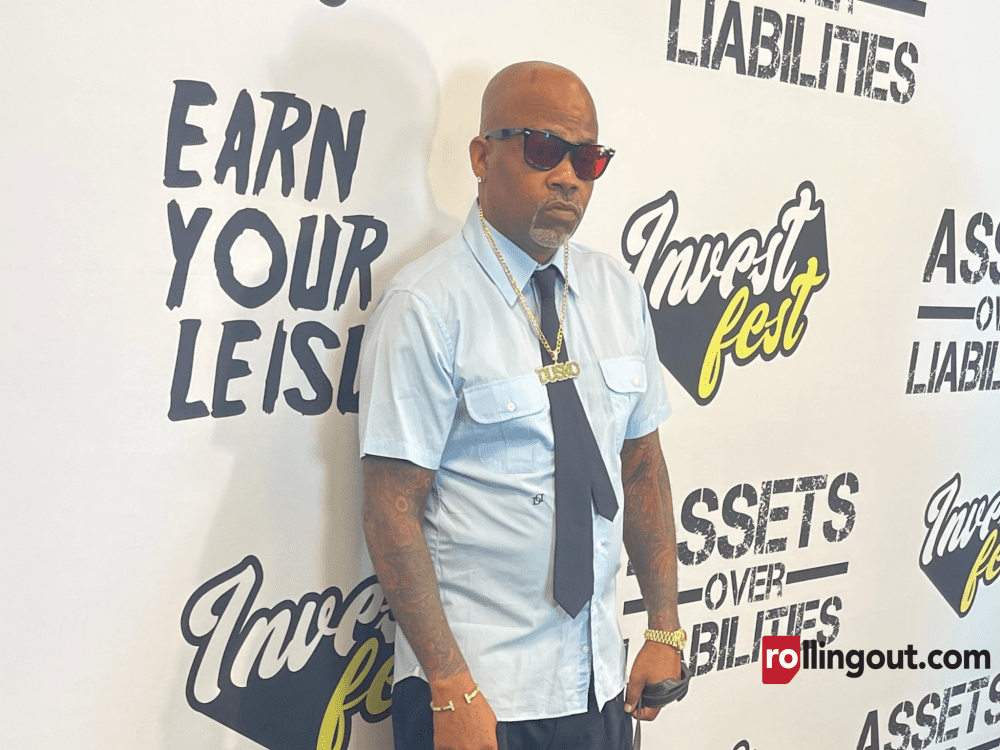In a revelatory discussion that unveils the intricate tapestry of music industry relationships, Dame Dash has brought to light a compelling narrative about John Legend’s early career trajectory. This disclosure illuminates the complex dynamics that shaped one of modern music’s most significant careers and offers unprecedented insight into the strategic decisions that influence artistic pathways within the competitive landscape of hip-hop and R&B.
Early days and strategic moves
The story begins in the formative years of Legend’s career, when the landscape of hip-hop and R&B was undergoing significant transformation. Dash’s involvement with Legend extended beyond casual interest – it represented a calculated investment in emerging talent. The music mogul funded Legend’s international touring experiences alongside Kanye West, demonstrating a level of commitment that typically precedes major signing decisions.
This period marked a crucial time in the music industry, as labels competed intensely for emerging talent that could bridge multiple genres. Roc-A-Fella Records, under Dash’s co-leadership, had established itself as a powerhouse in hip-hop, and the potential addition of Legend represented an opportunity to expand their musical footprint into new territories.
The business of talent acquisition
The intricacies of music industry negotiations often remain hidden from public view, but this situation provides a rare glimpse into the high-stakes world of artist recruitment. Dash’s investment in Legend’s early career development followed a proven industry model – identifying promising talent, providing exposure through association with established artists, and creating opportunities for growth. This approach had previously yielded success with other artists under the Roc-A-Fella banner.
The label’s strategy involved more than mere financial investment; it encompassed a comprehensive approach to artist development, including touring opportunities, collaborations with established artists, and exposure to diverse audiences. This methodology had proven successful in launching and sustaining numerous careers within the hip-hop community.
Strategic pivot points
Legend‘s eventual decision to align with Sony rather than Roc-A-Fella represents a crucial moment in music industry history. This choice led to his signing with G.O.O.D. Music, Kanye West’s imprint, launching a series of successful releases. His debut album Get Lifted in 2004 marked the beginning of a remarkable run that would include five additional albums under the G.O.O.D. Music umbrella, spanning until 2016.
The decision-making process behind such career-defining moves often involves multiple factors, including creative control, market positioning, and long-term career sustainability. Legend’s choice to sign with Sony demonstrated the complex calculations artists must make when determining their professional trajectories.
Industry relationships and evolution
The complexities of music industry relationships often extend beyond business arrangements into personal territories. The evolution of Legend’s professional relationships, particularly with Kanye West, demonstrates how industry connections can transform over time. Their initial collaboration through G.O.O.D. Music represented a powerful alliance that would eventually face challenges due to diverging perspectives and career paths.
Industry relationships continue to play a crucial role in shaping careers and influencing the broader musical landscape. The interconnected nature of these professional networks often leads to both opportunities and challenges, as demonstrated by the evolving dynamics between key industry figures.
Legacy and impact
The revelation of this historical junction point raises intriguing questions about alternative paths in music industry development. While Legend’s success with Sony and G.O.O.D. Music is undeniable, the potential impact of a Roc-A-Fella association remains a fascinating consideration. This situation exemplifies how pivotal decisions in artists’ early careers can shape not only their individual trajectories but also influence broader industry dynamics.
Modern artists and industry professionals can learn valuable lessons from these historical interactions. The importance of strategic decision-making, relationship management, and long-term career planning remains as relevant today as it was during Legend’s early career choices.













